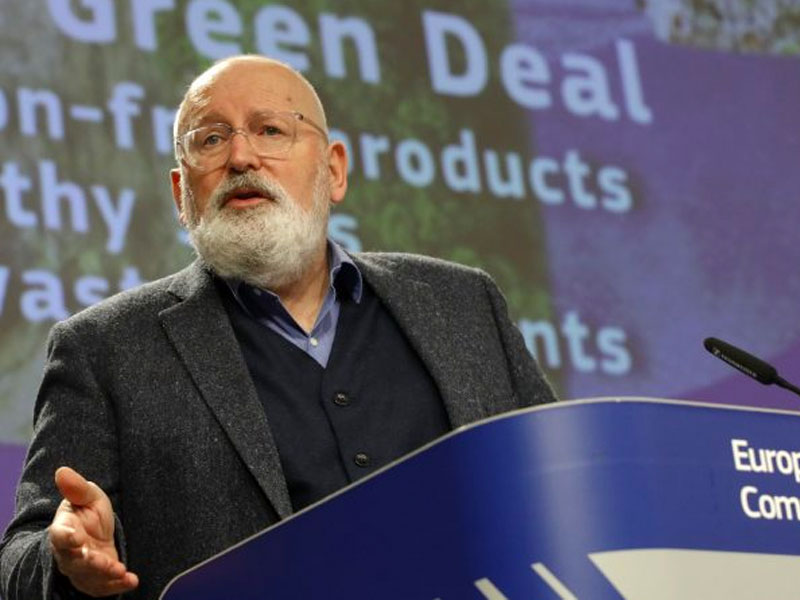UK becomes first to approve Casgevy genetic therapy for blood disorders
SOURCE: HTTPS://INTERESTINGENGINEERING.COM/
NOV 17, 2023
Timmermans: Gene editing ‘clear part’ of sustainability action in agrifood
SOURCE: EURACTIV.COM
DEC 03, 2021

European Commission Vice President Frans Timmermans added his voice to the growing list of those in the EU executive advocating for gene editing, a move condemned by campaigners who accuse the Commission of already making their mind up on the technology.
The Modern Biotechnologies in Agriculture high-level event, which took place on Monday (29 November), provided a forum for a “transparent and constructive” debate on how the EU could develop a regulatory framework on plants obtained through new genomic techniques (NGTs).
“Preliminary work has already revealed that plants obtained from new genomic techniques have the potential to contribute to the objectives of a more resilient and sustainable agri-food production,” Timmermans said, pointing to examples such as increased resistance of plants to pests, diseases and environmental conditions or the effects of climate change such as droughts.
“This is very promising,” he said, adding that this should be done in a way that cuts no corners on safety and should also be used in parallel with all other efforts to improve farming sustainability practices.
Referencing the sustainability ambitions as outlined in the EU’s flagship food and farming policy, the Farm to Fork Strategy, Timmermans said that work on NGTs will “clearly be part of those actions”.
He called the event a “milestone” in the dialogue on the technology, adding that the EU should “properly explore their potential in developing sustainable products”.
Health and Food Safety Commissioner Stella Kyriakides also put her weight behind the controversial biotechnology. She emphasised that NGTs are part of the innovation that can help “further our aims under the European Green Deal and Farm to Fork Strategy.”
“We all share a commitment to make our food system more sustainable. We are aware of how challenging this will be. All tools that contribute to this transition in a fair, sustainable and safe way must be explored,” she added.
Kyriakides also noted that it is “our responsibility is to create the conditions for developing products that can bring such sustainable benefits for our Union and beyond”.
LATEST NEWS
WHAT'S TRENDING


Data Science
5 Imaginative Data Science Projects That Can Make Your Portfolio Stand Out
OCT 05, 2022

SOURCE: HTTPS://INTERESTINGENGINEERING.COM/
NOV 17, 2023
SOURCE: HTTPS://GENETICLITERACYPROJECT.ORG/
SEP 05, 2023
SOURCE: HTTPS://WWW.SCIENCEDAILY.COM/
AUG 07, 2023
SOURCE: HTTPS://WWW.SCIENCEDAILY.COM/
JUL 24, 2023
SOURCE: HTTPS://NEWS.MIT.EDU
JUL 20, 2023
SOURCE: BIOSPACE.COM
OCT 27, 2022